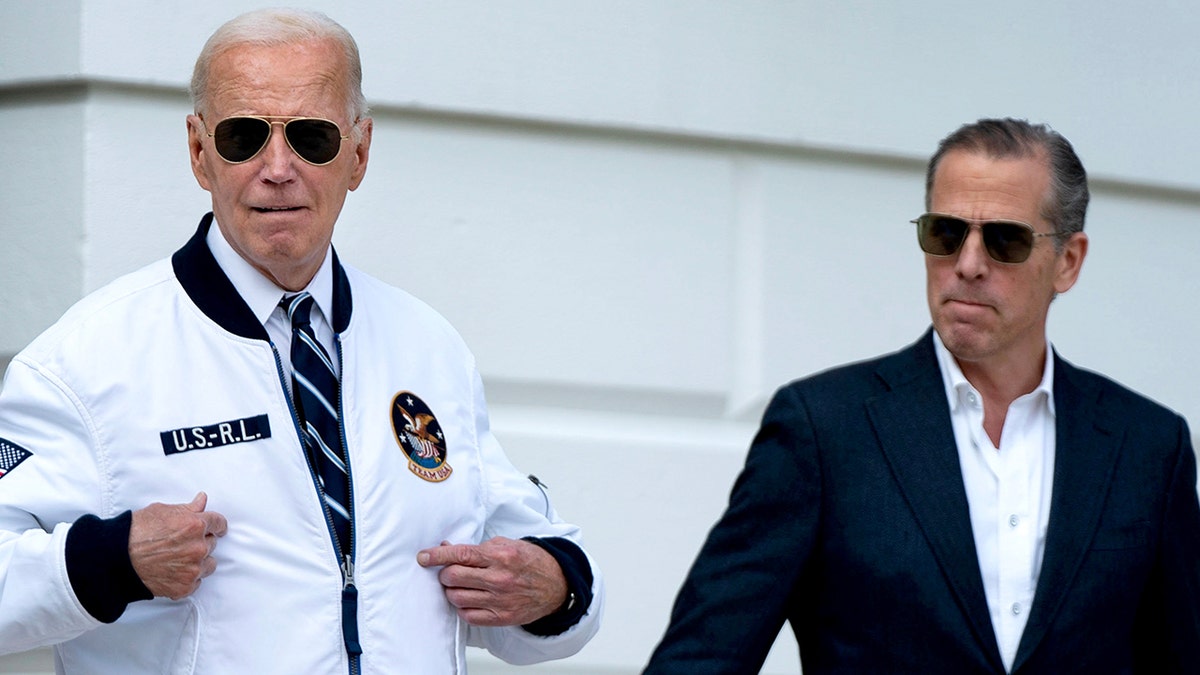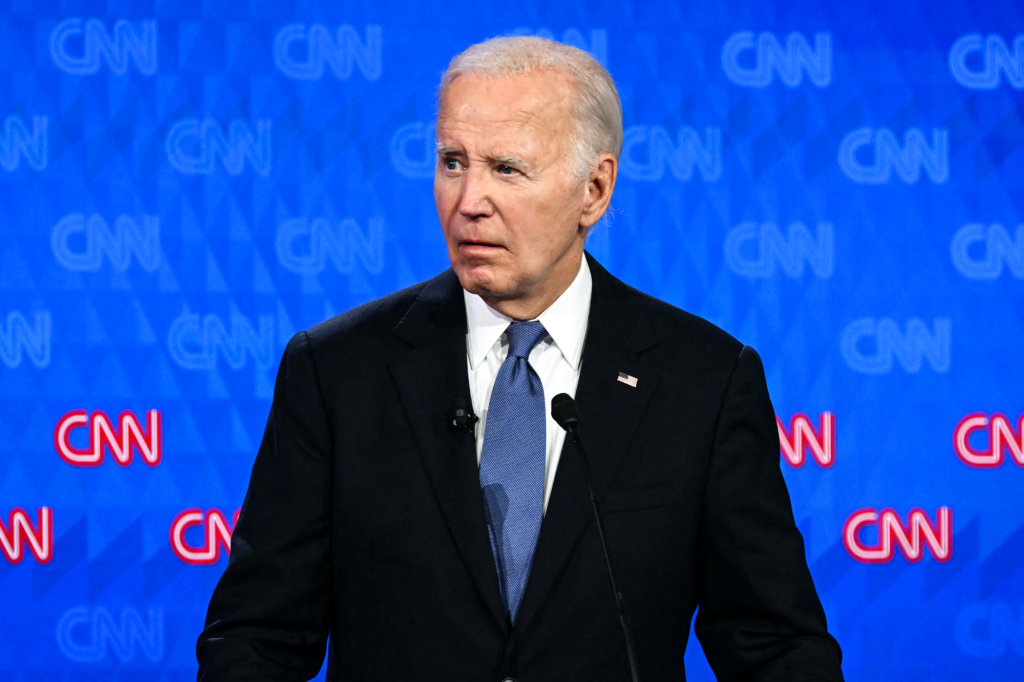
Senator Ron Johnson (R-WI), chairman of the Senate Permanent Subcommittee on Investigations, has formally demanded that the National Archives and Records Administration (NARA) turn over all records in its possession relating to former President Joe Biden’s mental and physical health, as well as any communications potentially tied to what Johnson describes as a coordinated cover-up of Biden's alleged cognitive decline during his presidency.
Johnson's request, revealed in a letter obtained exclusively by Fox News Digital, escalates a growing Senate probe into the competency of Biden’s leadership and decision-making, particularly in the final months of his term.
Johnson's inquiry into the matter stems from longstanding suspicions and public observations about Biden's cognitive and physical condition, concerns that intensified toward the end of his presidency.
Allegations suggest that key members of the Biden administration — including cabinet officials, personal advisors, and even members of his family — may have concealed the full extent of the former president’s decline from both the public and government oversight bodies.
"My office has been reviewing the allegations that former President Biden, cabinet members, and his staff covered up his declining mental and physical health over the course of his presidency," Johnson wrote in his letter addressed to Secretary of State Marco Rubio, who is serving as the acting Archivist of the United States.
"These allegations raise serious questions about who was making key presidential decisions if the former president was incapable of doing so."
One of the primary areas of concern for Johnson's investigation involves presidential decisions related to clemency and pardons, responsibilities that constitutionally rest with the president alone.
These concerns come in light of revelations surrounding Biden’s use of an autopen — a mechanical device capable of replicating a person’s signature — to sign numerous documents, including high-profile pardons and executive actions.

The White House Counsel’s Office, in coordination with the Department of Justice, has already launched its own inquiry into Biden’s autopen use, reportedly reviewing over 27,000 documents supplied by NARA.
Johnson’s letter follows Fox News Digital’s exclusive report on the White House Counsel’s investigation and suggests that the trove of records turned over by NARA represents just a fraction of what the Archives may actually hold.
Johnson is now demanding that the National Archives provide all records that refer or relate to Biden’s mental or physical health, as well as all communications tied to the alleged cover-up, including those between former senior White House officials and cabinet members.
Specifically, Johnson has called for any documentation and communications involving former White House chiefs of staff Ron Klain and Jeff Zients, senior advisor Mike Donilon, counselor to the president Steve Ricchetti, Biden’s personal attorney Bob Bauer, senior advisor Anita Dunn, and former White House physician Kevin O’Connor, among others.
Johnson’s request encompasses any and all information about the president's condition, including efforts to obscure the state of Biden’s health from the public or Congress.
Johnson has given Rubio and NARA a deadline of July 30 to comply with the request.
The demand for transparency comes amid parallel investigations unfolding within the legislative branch. In June, President Trump issued a memorandum to the Department of Justice directing Attorney General Pam Bondi to investigate Biden’s use of the autopen, particularly scrutinizing whether it was employed as a workaround for the president's alleged incapacity to physically sign important documents himself.
The DOJ has since begun examining whether the extensive reliance on the autopen correlates with a deterioration in Biden’s mental state, a question that strikes at the heart of presidential accountability.

Unlike a mere stamp or digitized signature, the autopen is a sophisticated machine capable of holding and using a variety of writing instruments, from standard ballpoint pens to permanent markers.
Its application is legally controversial when used for official state matters, particularly when signatures authenticate decisions such as executive orders, pardons, and commutations.
During his presidency, Biden employed the autopen for a significant number of official documents, including sweeping clemency actions. In his final weeks in office, Biden granted clemency or pardons to over 1,500 individuals, marking what the White House touted as the largest single-day act of clemency by any president in U.S. history.
However, records suggest that Biden personally signed only one pardon by hand — for his son, Hunter Biden — despite previous assurances to the American public that he would not issue a pardon for his son.
In a recent interview with The New York Times, Biden attempted to defend his reliance on the autopen, claiming that he "made every decision" regarding the clemency process.
“We’re talking about [granting clemency to] a whole lot of people,” Biden explained. Nonetheless, the Times reported that Biden did not personally approve each individual case. Instead, he authorized general criteria for mass pardons and commutations, with staff subsequently vetting and finalizing the lists of recipients.
The implications of Biden’s autopen usage extend beyond legal propriety — they raise existential questions about the functional capacity of the presidency itself. Congressional oversight committees, including the House Oversight Committee, are concurrently conducting their own investigations into both the autopen's deployment and the broader issue of Biden's health during his time in office.
A senior administration official, speaking on condition of anonymity, acknowledged that multiple investigative efforts are underway but stressed that the White House Counsel’s review remains separate from any congressional probes.

The official characterized the internal review as a "massive effort" and noted the administration's intention to conclude it "as soon as possible" to ensure transparency.
Former President Trump’s office was quick to distance his own administration from the practice. According to aides, Trump does not use an autopen for any business that could be considered official or constitutionally significant.
While his staff acknowledged that the autopen might be used for trivial matters — such as signing birthday cards or ceremonial documents — all legally binding or executive decisions were signed personally by Trump.
Commenting on the ongoing investigations, Johnson emphasized the urgency of his request to NARA. "We have a responsibility to the American people to understand who was actually governing this country in the final months of the Biden presidency," Johnson said in a statement to Fox News Digital.
"If the president himself was incapable, then the American public deserves to know who was making the decisions that shaped domestic and foreign policy."
Legal experts have expressed mixed views on the evolving situation. While the use of an autopen is not inherently illegal, the broader implications of its usage — especially when combined with allegations of concealed cognitive decline — pose significant constitutional and ethical dilemmas.
Presidential historian Dr. Alan Stern noted that while some presidents have used autopen devices sparingly, "the scope and context of its use during the Biden administration appear unprecedented, especially given the allegations of mental decline."
Moreover, Johnson's probe signals an expansion of the political narrative that has plagued Biden throughout his presidency: the question of his mental fitness to lead.

The White House and Democratic allies have repeatedly dismissed such claims as politically motivated attacks lacking credible evidence. Still, the formal investigations, coupled with Biden’s visible reliance on mechanical aids like the autopen, ensure that the issue will remain a central theme in partisan debates and possibly in the 2028 presidential election.
Adding another layer of complexity is the involvement of the Biden family in the controversy. Hunter Biden’s legal troubles, combined with the former president's decision to pardon him, have already fueled perceptions of impropriety and favoritism.
The fact that Hunter’s was the sole pardon Biden signed by hand has not gone unnoticed, further inviting speculation about the true extent of Biden’s direct involvement in presidential decisions.
With the Senate deadline looming and investigations ramping up, the Biden administration faces intensifying pressure to provide clarity and transparency.
Whether the National Archives will fully comply with Johnson's demands remains to be seen, but the stakes are undeniably high — both for public trust in government and for the historical legacy of Biden's presidency.
As Johnson's investigation proceeds, the unfolding drama surrounding Biden’s health, the autopen, and the alleged administrative cover-up promises to be a defining political flashpoint, with implications that could reverberate across multiple branches of government and influence public perception of executive power in the modern era.


